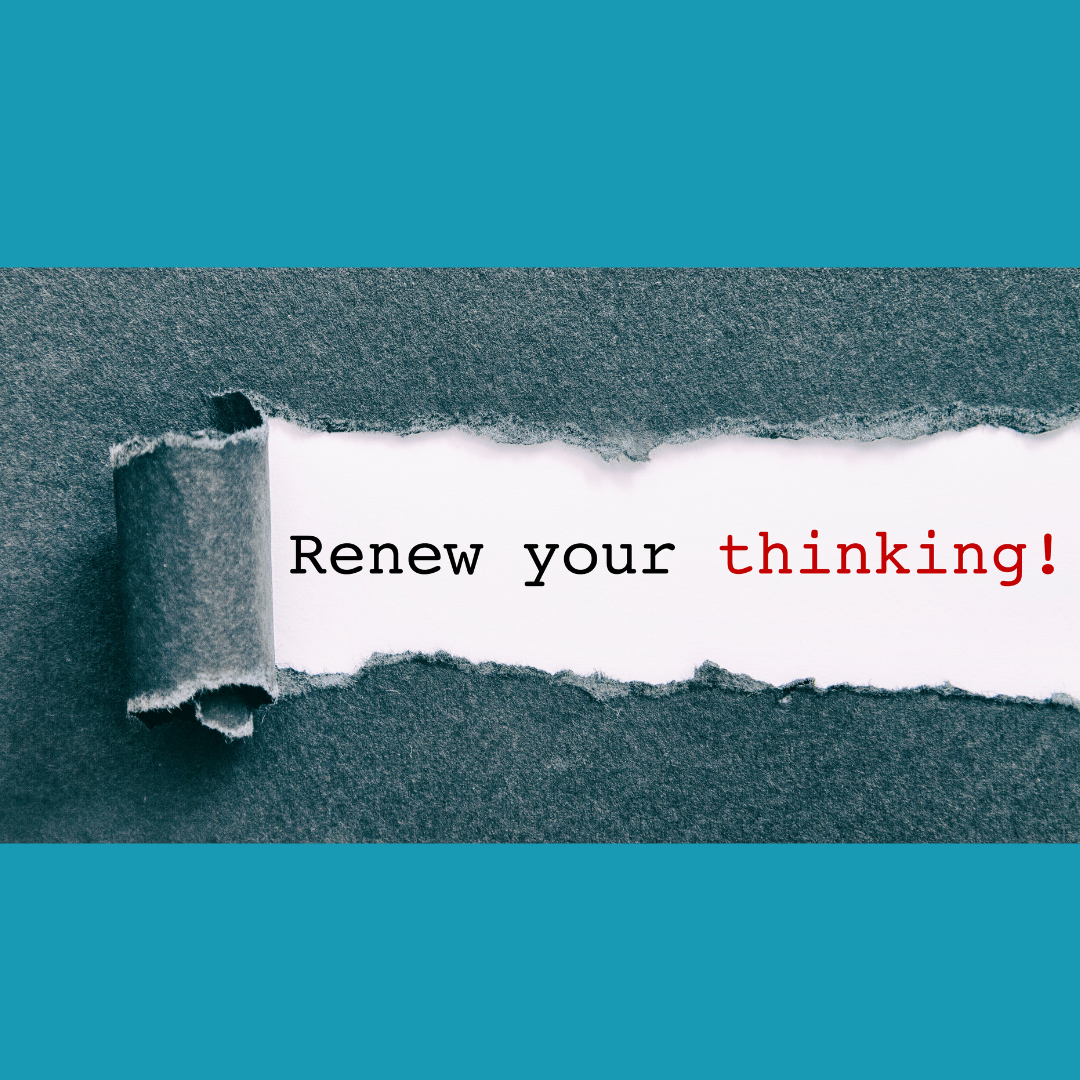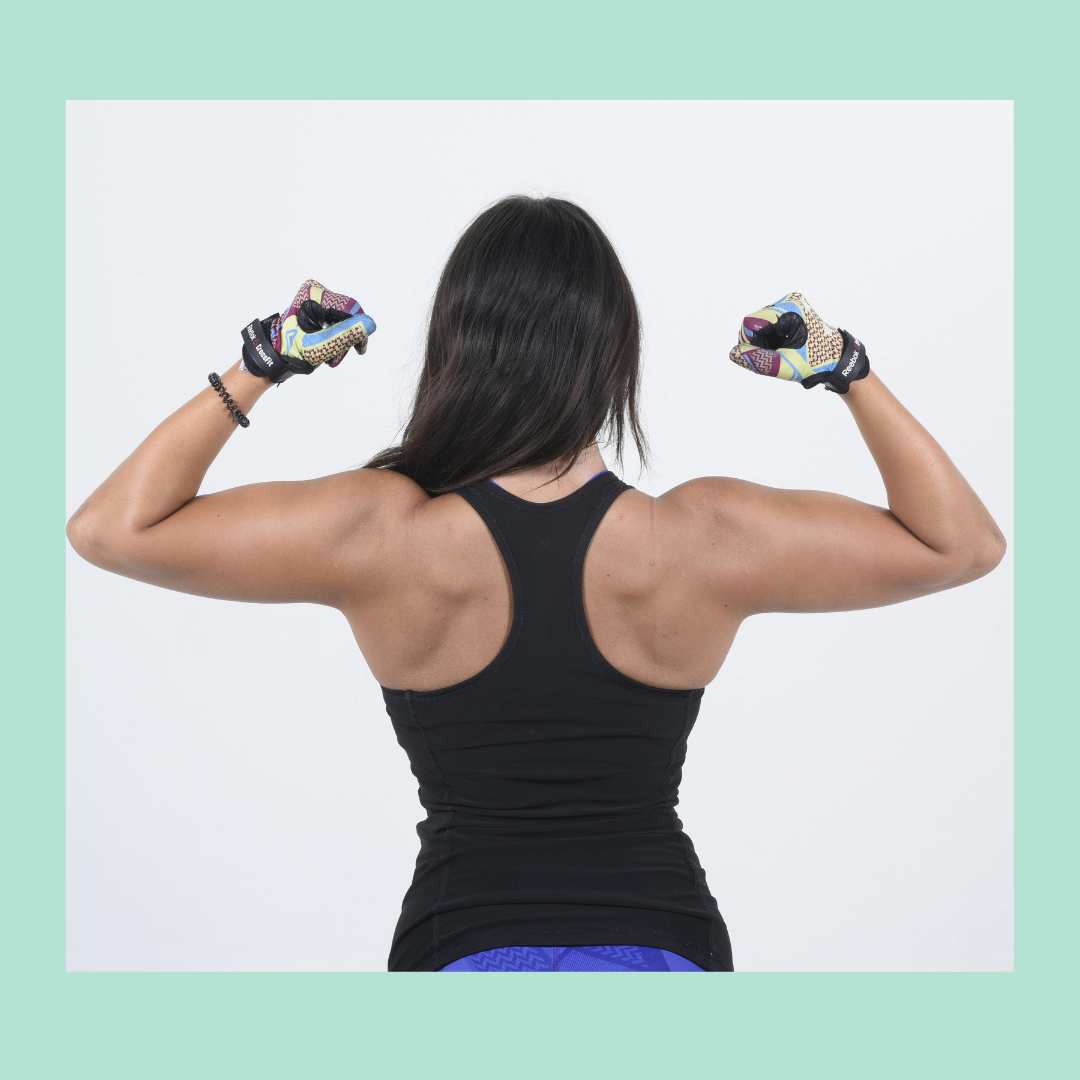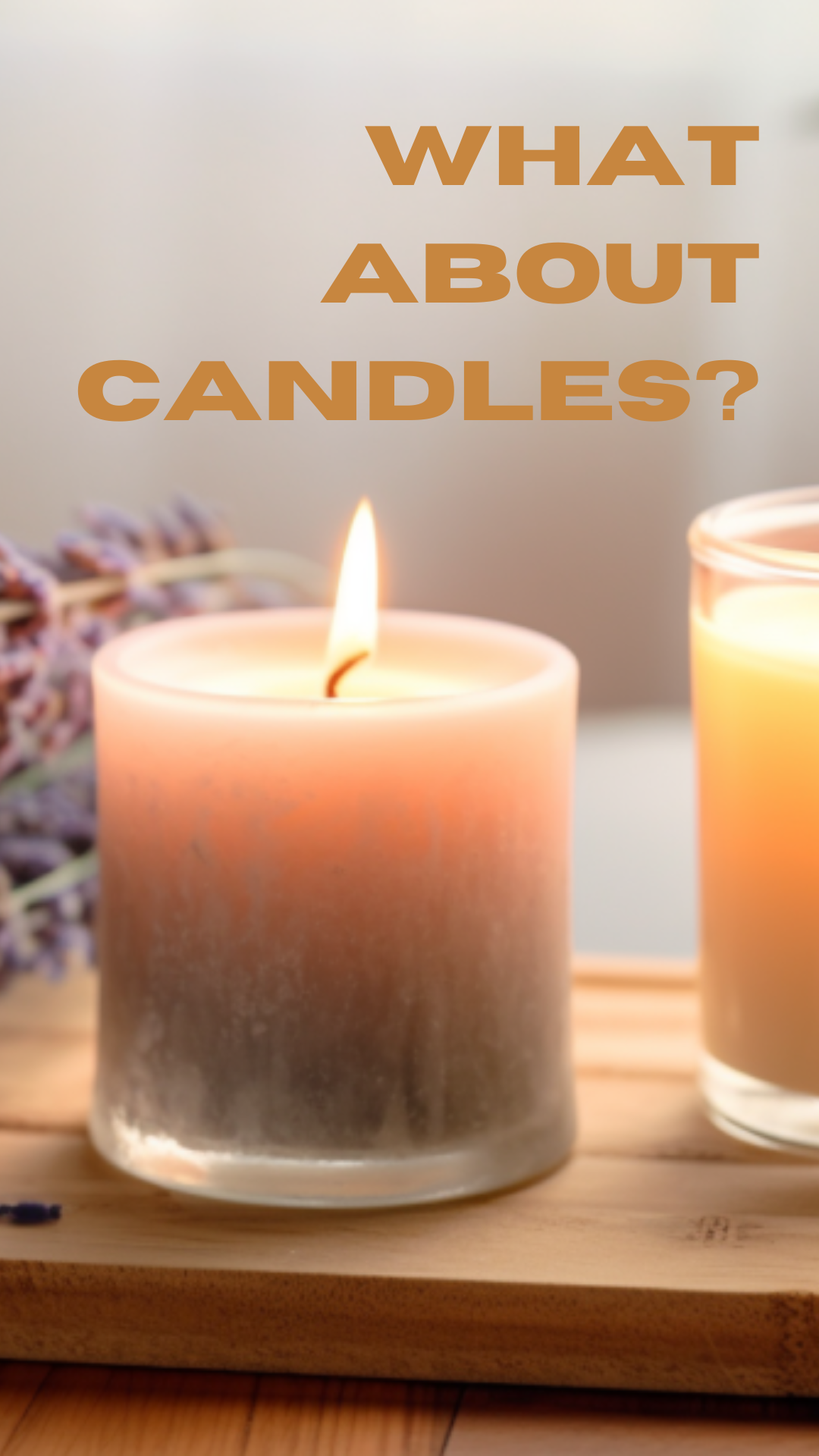It’s Healthy to Change Your Mind
For years, “healthy” meant fat-free everything. Then it was low-carb. Then keto. Then fasting.
We were told to log endless miles of cardio for heart health.
Now we know that strength training is one of the most powerful tools we have for longevity.
And for me personally, fasting has been one of those areas I’ve had to rethink.
Many health professionals I respect promote longer fasts, and yes, there are powerful benefits. But for midlife bodies, the risk of muscle loss is real - and that’s not a trade-off I’m willing to make.
So I reframed my approach: I now lean into something simple and sustainable - a 12-hour overnight fast, from dinner to breakfast.
No extremes. Just something that works for the long haul.
These kinds of shifts … this practice of reframing … show up everywhere.
In our health. In our relationships. In how we see the world.
Strong Bones Start Here
I’m hearing it more and more these days: women in their 40s, 50s, and 60s being told they have osteopenia or osteoporosis. Sometimes it’s discovered during a routine bone scan. Other times, it follows a small fall or fracture that shouldn’t have happened.
And the reaction is always the same — frustration, fear, and the question: “What can I do about it?”
Like most diagnoses we face, yes, it can be scary, but it can also be frustrating. Sometimes that frustration turns inward.
We ask ourselves, what could I have done to prevent this?
But rather than obsessing about the past, it's time to think about the future - and figure out exactly what we can do, because …we are not powerless.
And probably a lot more resilient than we realize.
Our bodies really do have the capacity to change … with the right inputs … at any age.
And honestly, it's that agency we have - that sense of control - that is really exciting for all of us.
Bone density isn’t fixed. Muscle isn’t static. Our bodies respond to the right signals - no matter our age - and strength training is the single most powerful signal we can send.
Find Your Happiness Zone (Your Brain will Thank You)
I’m curious — how do you generally feel when you wake up?
- Energized and ready to dive into your day?
- Trepidatious about the to-do list ahead?
- Or maybe just… unmotivated, facing a job or routine you’re not in love with?
However your mornings usually feel, here’s the truth: how you shape your day has a huge impact not just on your mood, but on your brain health.
If you wake up feeling like you have a good deal of control over your day — seize that opportunity.
Use it to create moments that bring joy, meaning, and connection. These aren’t nice-to-haves.
Are your Labs Normal, Or Optimal?
Has this ever happened to you?
Your doctor’s office calls with the standard line: “Your labs look normal … maybe your cholesterol’s a bit high … but all OK."
And that’s it. No explanation. No context. No mention of important markers like vitamin D or magnesium (which, by the way, insurance often doesn’t even cover - kind of crazy).
But we're busy - so content with the normal labs, and we're off to the next thing.
There's just one problem …
Conventional labs are often black and white: you’re either fine or you’re not.
But the truth is, there’s a world of shades of gray in between—levels where you may not be sick, but you’re definitely not thriving.
👉 This is where functional medicine takes a different approach.
The Strength You Need to Keep Doing What You Love
As a Healthy Aging Coach, I think a lot about what it takes to keep living in health … not just adding years to our life, but life to our years.
It’s not just about avoiding illness.
It’s about staying strong, energized, and capable, so we can keep doing the things we love, on our own terms.
And I truly believe:
Focusing on getting stronger is one of the greatest gifts we can give ourselves.
That’s why I want to share this with you today:
I feel stronger at 62 than I did in my 40s (and that's a good feeling).
And not because I’m doing anything extreme, but because I finally got consistent about getting stronger.
Why does strength matter, more than we think? Well, the biggie is:
Strength is the #1 predictor of independence as we age.
A Wedding, a Reset, and 3 Habits for September
I just returned from two magical weeks in Maine, my favorite place, where we celebrated the most special wedding of all - -
my daughter’s, held at her childhood summer camp.
The days were filled with family, friends, and unforgettable moments.
What surprised me most was how much joy I found in the pre-wedding “DIY” projects … the very things that had worried me the most beforehand.
I’d pictured stress, endless to-dos, and projects going sideways.
Instead, painting signs, labeling rocks, folding napkins with fern fronds (from two ferns that traveled from my porch to Maine and back again!), and making more floral arrangements than I can count turned out to be sooo fun and even grounding.
One of the highlights? My 65-year-old bachelor cousin carefully tucking fern fronds into place settings - it was proof that everyone can get into the spirit when you’re working side by side.
As wonderful as it was to soak up every moment, it’s also nice to be back home, shifting into what fall will look like.
For me, that means resetting after two weeks of late nights, too much ice cream, and maybe more wine than I’d normally have (though I’m convinced all the laughter canceled that out!).
How Origin Stories Shape Our Health
The other day I was listening to a podcast about origin stories - those defining experiences and influences that shape who we are.
I had never really thought about mine before, but something clicked.
I started wondering:
What parts of my path, my talents, and my passions were seeded by the people and experiences that came before me?
Before I dive in, you might be thinking:
What does this have to do with health?
The short answer: everything.
Because our stories shape our thoughts, our actions, and our emotions.
And all of those are directly connected to our health. How we feel, how we move forward, how we connect with others and ourselves - these are the threads that tie together emotional, mental, and physical well-being.
Five Everyday Habits That Quietly Increase Alzheimer’s Risk
As we age, many of us carry a quiet fear:
"What if I lose my memory?
What if I end up like mom, dad or grandma?"
In fact, a 2020 Harris poll cited that 82% of Americans say they’re concerned about Alzheimer’s disease, and more than half worry they’ll personally develop it.
If some form of dementia runs in your family, it can feel like a guarantee.
But here’s the good news: It’s not.
Yes, there’s a genetic link.
But no - it’s not a life sentence.
The truth is: Alzheimer’s is often preventable.
The $7 Kitchen Tool That Promotes Longevity
Yes, it’s a great tool for boiling the perfect egg.
But I want you to use it for something far more important:
To interrupt sedentary behavior - one of the biggest threats to our health.
What is sedentary behavior, really?
Think about your day:
You get up, sit down for breakfast. Or look at your phone. Read the news. You drive the kids to school, or yourself to work … sitting.
You arrive and park yourself at a desk.
Or maybe rather than driving to work, you sit down on the couch, the kitchen counter, or your home office to get your work done.
Maybe you crush it for hours … but without even realizing it, you haven’t moved in 3+ hours.
You might not feel sedentary - but the science says otherwise.
The Candle Conundrum
I'll admit… I hesitated to write this one.
Because who doesn’t love candles? The flicker of the flame, the cozy vibe, the inviting scent of sea and sand or fresh linen — it’s pure ambience in a jar.
But here’s the thing: I also care a lot about clean air.
And unfortunately, the same candles we burn to create a comforting atmosphere are often not doing our air quality (or our health) any favors.
So what’s Actually in Most Candles?
Many popular candles - especially the mass-produced ones - are made from paraffin wax, a petroleum byproduct.
When burned, paraffin releases potentially harmful chemicals like benzene and toluene — both known carcinogens.
Add synthetic fragrance and dyes to the mix, and you’ve got a pretty toxic combo drifting through your home.
The Science of Aging Well: Why our “Lifestyle” is More Powerful than Our Genes
I've been diving into some truly fascinating science lately, and I can't stop thinking about what it means for our health.
And I'm not really a "sciencey" person.
But I'm hoping that you'll find this as compelling as I do.
The science I will share offers proof positive that all those foundational principles, our daily habits, that I'm always writing about here … are absolutely essential to healthy aging.
And yes, it takes effort — to change, to start, to find the time.
But if you’ve been waiting for that spark — a dose of insight that helps you see things differently, that makes you more aware of what’s possible with small, intentional lifestyle shifts…
…then maybe, just maybe, this is exactly the nudge you’ve been needing to move forward.
What I'm writing about here is the foundation of the Younger You program by Dr. Kara Fitzgerald - and it’s giving me a whole new way to talk about why your daily choices matter so much.
You know eating well, moving regularly, getting quality sleep, managing stress, and minimizing toxins are important. We all know that.
But here’s the question that gets me fired up:
👉 Do you realize just how those habits shape your health, your longevity, and even your gene expression?
This is where things get really interesting.
Wired? Tired? Find Your Balance
When we hear the phrase energy balance, the technical definition usually comes to mind: the balance between energy intake (what we eat) and energy expenditure (what we burn).
It’s a scale — and tipping too far in either direction can impact everything from metabolism to mood.
After years of navigating work, motherhood, and life in general, I’ve learned that energy balance, simply being and feeling balanced, is about so much more than the technical scientific equation cited above.
It’s about how we show up in life. How we protect and replenish our energy — physically, emotionally, socially, and spiritually — so we can thrive instead of just push through.
Here are a few ways I think about balance in real life:
The Bug Sprays I’ll Actually Use
I’m always amused when my oldest son visits from Salt Lake City and immediately starts complaining about the bugs.
Summer on the East Coast? Mosquitoes are just part of the package.
I’ve lived my whole life swatting them away, mostly avoiding bug spray because - let’s be honest - I hate the smell, the sticky skin feel, and the idea of rubbing something toxic all over me.
And seriously, what is in those cans?
Do we go with DEET or no DEET?
If it's toxic for bugs, is it toxic for us too?
And do those “natural” plant-based sprays even work?
But I think I'm going to think about it differently this season, and from now on. And I have my environmental health mentor, Lara Adler, to thank for that.
The Most Important Thing You Can Do For Your Health
What’s the most important thing you can do for your health?
I had a coaching session earlier this week, and my client asked me this exact question.
My answer?
Be mindful.
Be aware in the moment.
Be conscious of the decisions you're making.
Because here’s the truth:
Our health is shaped by the thousands of tiny choices we make each week.
Each decision—what you eat, how you move, when you rest, what you prioritize—has the power to move you toward greater health or nudge you back toward illness.
One helpful visual I often share is the Illness–Wellness Continuum, developed by Dr. John Travis back in the 1970s. It’s a simple model, but incredibly powerful.
The Surprising Upside of Being Uncomfortable
We live in a world that’s designed to keep us comfortable - and constantly entertained.
- Hungry? There’s a delivery app for that.
- Cold? A heated blanket is one click away.
- Bored? Just pick up your phone, and within seconds you’re scrolling, watching, shopping, or playing.
We’ve removed friction from nearly every part of our lives.
And in many ways, that’s a marvel of modern living. But in doing so, we’ve also erased some of the most beautiful, messy, and deeply human experiences that come from discomfort.
Especially boredom.
As parents, we often feel pressure to keep our kids occupied and “happy” at all times.
Screens become the default. Activities are scheduled down to the minute. But what if we’ve taken it too far?
Sunshine & Smarts: Protect your Skin without the Toxins
Given that summer is essentially here, I thought it might be helpful to explore the world of safe sunscreens … probably not the most exciting topic, but an important one to think about.
It’s always a challenge to navigate shelves packed with products -trying to figure out which ones work well and have ingredients that won’t compromise our health.
It's always important to remember that our skin is our largest organ — and it absorbs much of what we put on it.
Many ingredients in personal care products can make their way into our bloodstream, which is why choosing clean, non-toxic options really matters.
There’s growing concern around ingredients like oxybenzone, a common UV filter, which has been flagged in ongoing research for its potential health risks.
Given that all four of my kids have been lifeguards, I’ve spent a lot of time thinking about what sunscreen is best — and what won’t break the bank.
Here’s the truth: not all sunscreens are created equal.
Stop Living on Shoulds
We’ve all been there… saying some or all of the following things:
“I should be doing more of that.”
“I should be eating more vegetables … or more protein… or less ultra-processed food.”
“I should be exercising more.”
“I should be getting more sleep.”
“I should be drinking less alcohol… or more water.”
And so on.
Here’s where I weigh in—as a Healthy Aging Coach. I believe mindset may be the most critical aspect of being and staying healthy.
When we’re aware of what we should be doing—and we understand why it matters, how it’s connected to our energy, longevity, and ability to thrive—then something shifts. And when your mindset shifts from “I should” to “I choose," everything changes.
What a Morning Walk and Mark Twain Teach me about Health
Out on my morning walk yesterday, I started thinking about Mark Twain.
And, I know you’re thinking … that’s odd.
Well, I can kind of explain it.
Just the other day, a friend sent me a video of Conan O’Brien receiving the Mark Twain Prize for American Humor.
(if you're interested in hearing a clip of Conan's acceptance speech expressing his reverence for Twain, here is one.
Yesterday, I saw the news that the Pulitzer Prize was awarded to James by Percival Everett — a novel I read a few months ago.
It’s a fictional retelling of Twain’s Huckleberry Finn, but this time through the eyes of Jim — or “James,” as he’s called in the book - a Black man who was enslaved.
If you’re not familiar with Huckleberry Finn, it’s set in the pre-Civil War South and centers around Huck, a young white boy, and Jim, a man escaping slavery.
Reading James through Jim’s perspective offers a profound shift in understanding - one that expands empathy and reminds us of how easily we miss the full truth when we only view a story through our own lens.
30 Plants a Week … 30 Grams of Fiber a Day - Here’s Why it Matters
I grew up with a mom who always served at least three different vegetables on our plate—and often added a side salad, too. She emphasized the importance of color, variety, and trying everything at least once.
👏 Hand clap for Mom.
She passed away 15 years ago, during a whirlwind season of my life - four young kids at home, a demanding corporate job, and very little space to process anything beyond the next to-do.
I wish I could thank her now for all the quiet lessons she taught me at the dinner table.
Her wisdom—about food, nourishment, and showing up for family—has stayed with me in ways I couldn’t fully appreciate at the time.
Bathing … in the Woods
Well, it’s finally here — that time of year when we’re itching to get back outside, soak up the spring air, and feel the warmth of the sun on our faces.
This week, I want to share an idea that might shift how you think about your next walk in the woods. Or, dare I say… your next forest bath?
Whether the forest is just beyond your backyard or a short drive away, being surrounded by trees is deeply peaceful.
Fresh air, sunlight, the earthy scent of leaves and bark — it all feels like medicine for the soul. And in many ways, it actually is.
While hiking or trail running is an effective way to get moving, there’s another practice that’s less about activity and more about being: it’s called Forest Bathing.



















